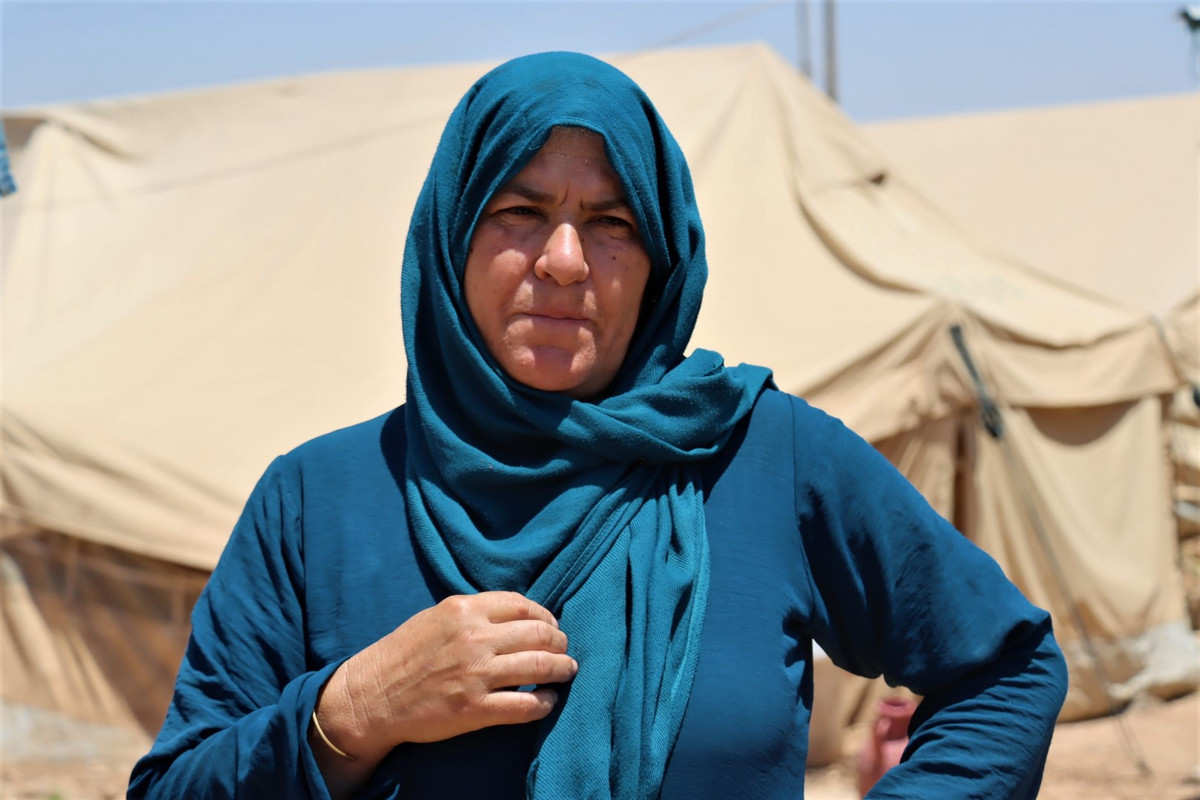The only hope of IDPs from Turkish-occupied regions is to return home
IDPs from Turkish-occupied regions, who sadly welcome another religious festival away from their homes, say that their only hope is to return to their land.
IDPs from Turkish-occupied regions, who sadly welcome another religious festival away from their homes, say that their only hope is to return to their land.
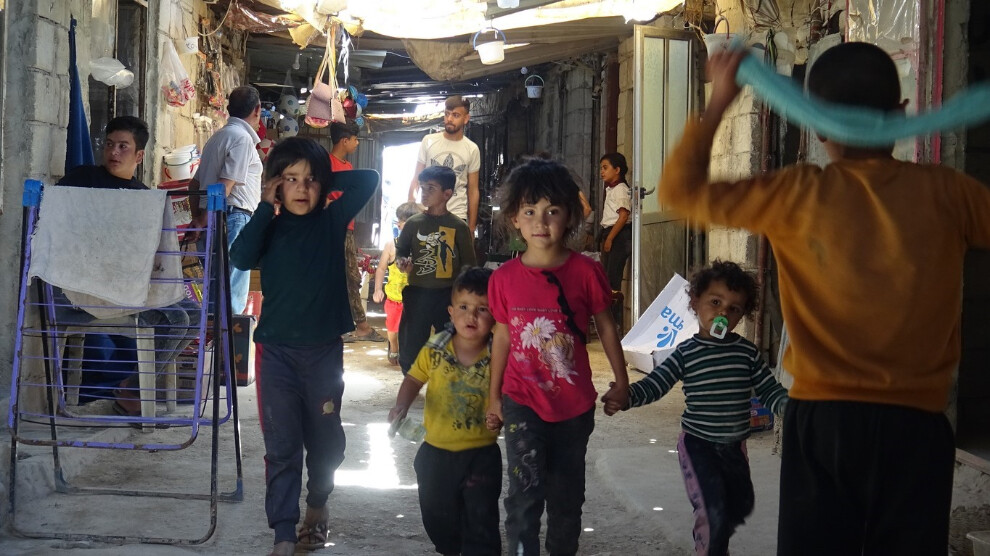
Another Feast of Sacrifice has arrived, but thousands of IDPs in northern Syria still live far from their homes occupied by the Turkish state. The only hope of IDPs living in the camps under challenging conditions is to return to their homes.
Faced with the invasion attacks of the Turkish state and the siege of the Damascus government, thousands of refugees from Afrin have been living in the Shehba canton since the occupation of their land in 2018.
Fatme Bekir, a refugee from the Jindires district, spoke to ANHA and said: “Since 2018, 6 members of our family have been living in a tent in the Serdem Camp and we are going through difficult times. We welcome the arrival of Eid al-Adha, but we cannot enjoy it like we did in Afrin.”
Bekir added: “We are celebrating the feast of sacrifice with our children. Our best festival will be to return to Afrin and to ensure the physical freedom of Kurdish leader Abdullah Öcalan.”
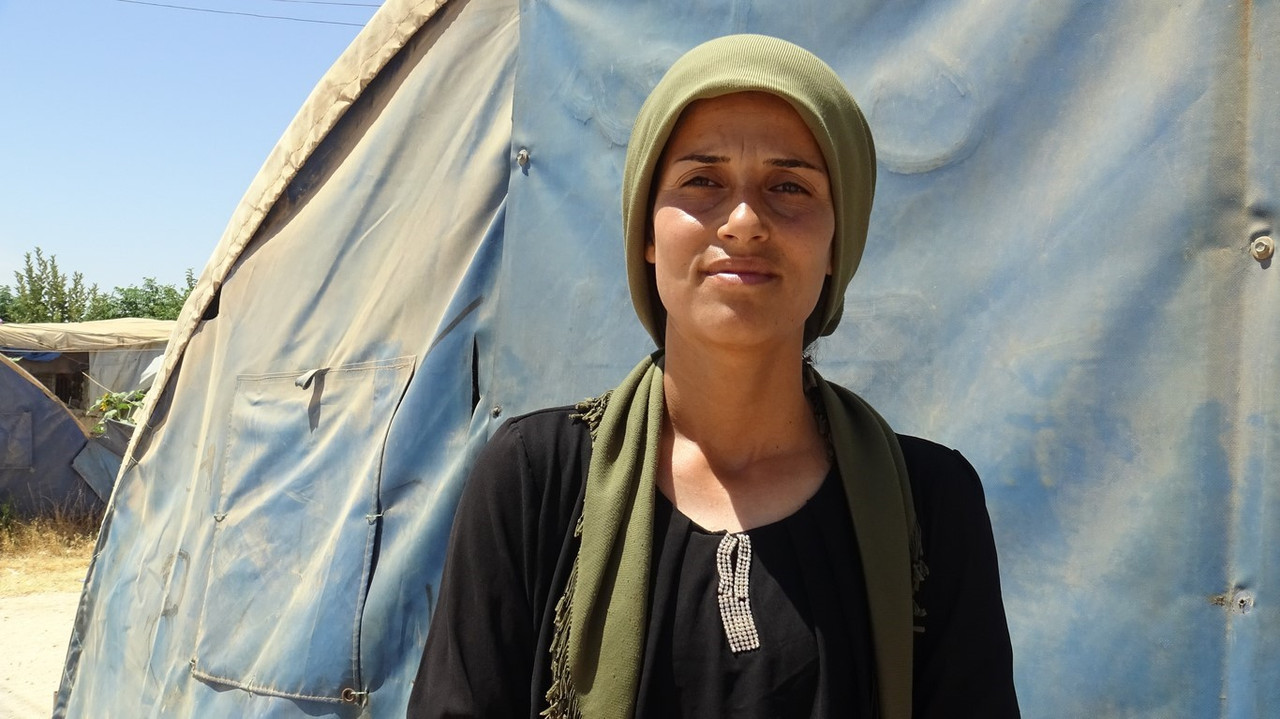
Xedice Ibo, who comes from the Shera district and currently resides in the Berxwedan camp, said: “We did not make many preparations for the holiday as we used to do in Afrin. Our only hope is the liberation of Afrin.”
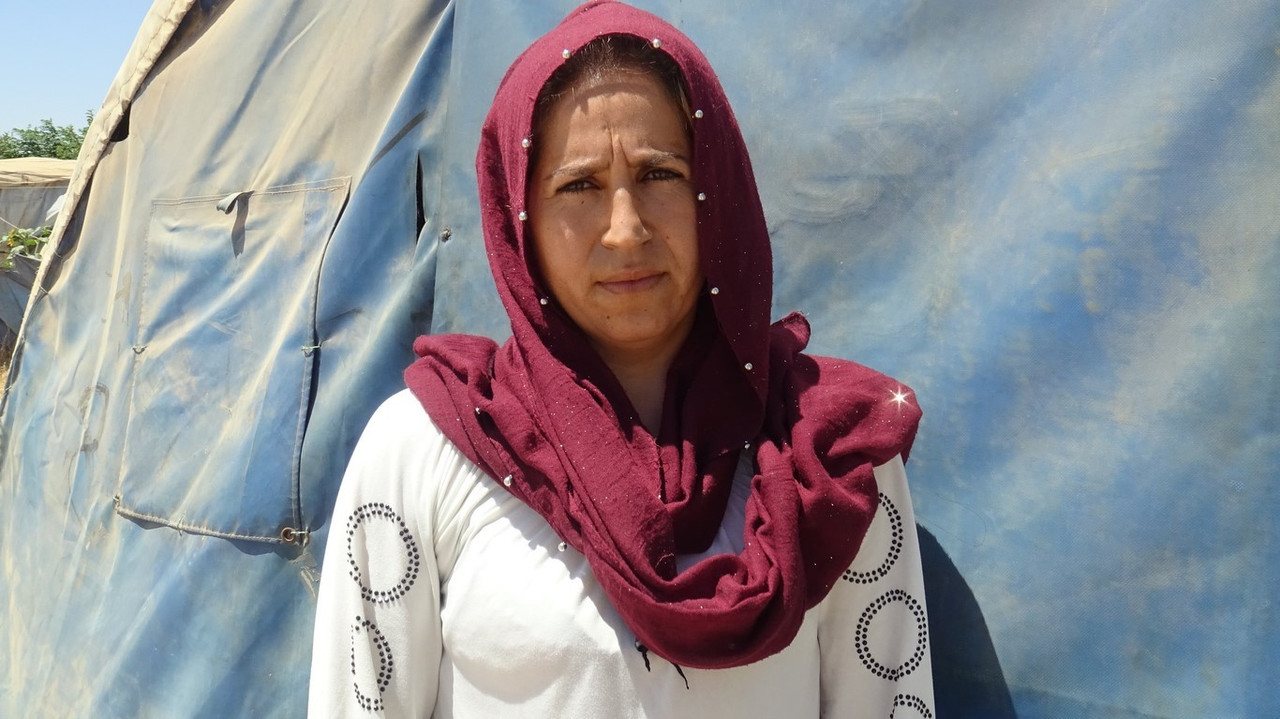
The feast of sacrifice is welcomed with no enthusiasm in the district of Ain Issa, which houses thousands of refugees from the occupied canton of Girê Spi (Tal Abyad). Refugees said that their main celebration would be the withdrawal of the invading Turkish state and allied mercenaries and a return to their homeland.
40-year-old Ruqiye Mihemed, a mother of 2, comes from Şergirak village. She said that they did not feel the enthusiasm for Eid after they were displaced from their land with no communication with their neighbours. Mihemed stated that their main celebration would be the withdrawal of the invading Turkish state and its mercenaries and their return to their homeland.
“My husband is a water tanker driver. His salary barely covers our basic needs. We could not afford holiday candies, nor could we buy new clothes for our children.”
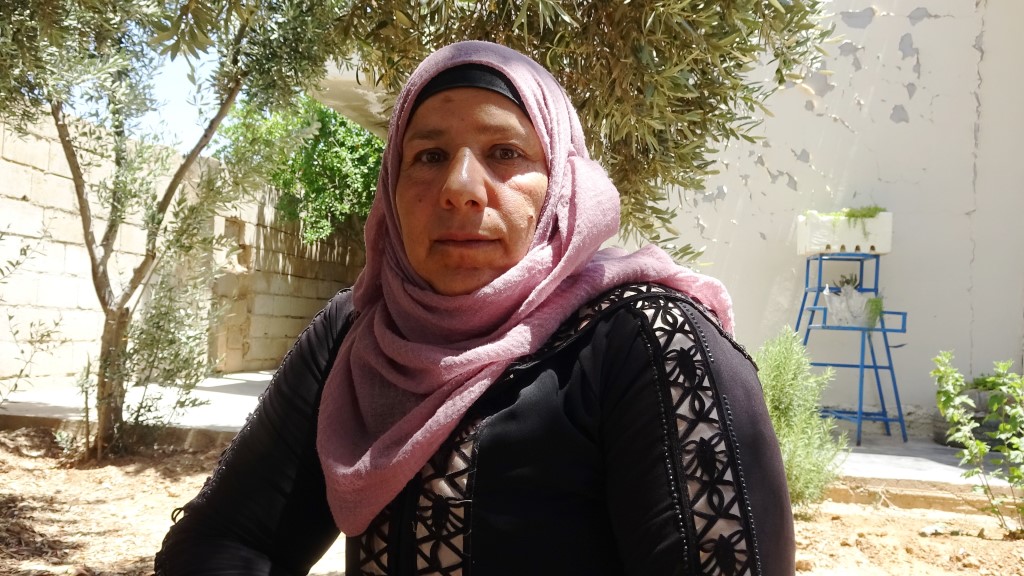
Salhe Osman (57), a refugee from Girê Spî and mother of 9 children, said that she was sorry that she was far from Girê Spî and did not feel the enthusiasm of the feast of sacrifice. She pointed out that those whose land is occupied cannot enjoy the feast of sacrifice.
Osman currently lives with her younger son, Ehmed, who is a member of the Ain Issa district committee. He is the father of 3 children, one of whom is visually impaired. Ehmed could not buy the necessary things for the feast due to the high cost of living.
Osman said that the holidays before the occupation were very good, they cooked holiday meals and bought new clothes for their children. After their displacement from home, however, they barely make a living and can hardly pay the rent.
The woman underlined that they will not be able to enjoy the feast until the invaders leave their land and they return to their hometown.
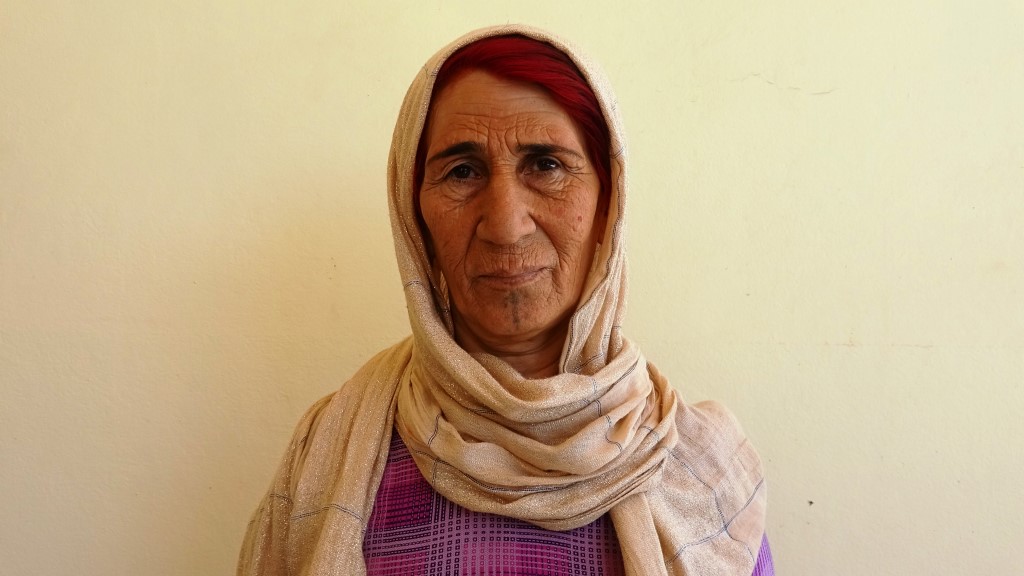
The situation of IDPs from Serêkaniyê is no different from those from Afrin and Girê Spî. Their hope is to get rid of the invaders and return to their homes.
Xelil Moro from Serêkaniyê said: “We are celebrating Eid al-Adha with our relatives and families. However, we are suffering because of the distance from our city and our relatives who dispersed after migration."
Moro continued: “Holidays are not like they used to be. We used to prepare for the feast and sacrifice. However, we can't do any of those things anymore.”
“My only wish is that we return to our homes and our city safely,” he added.
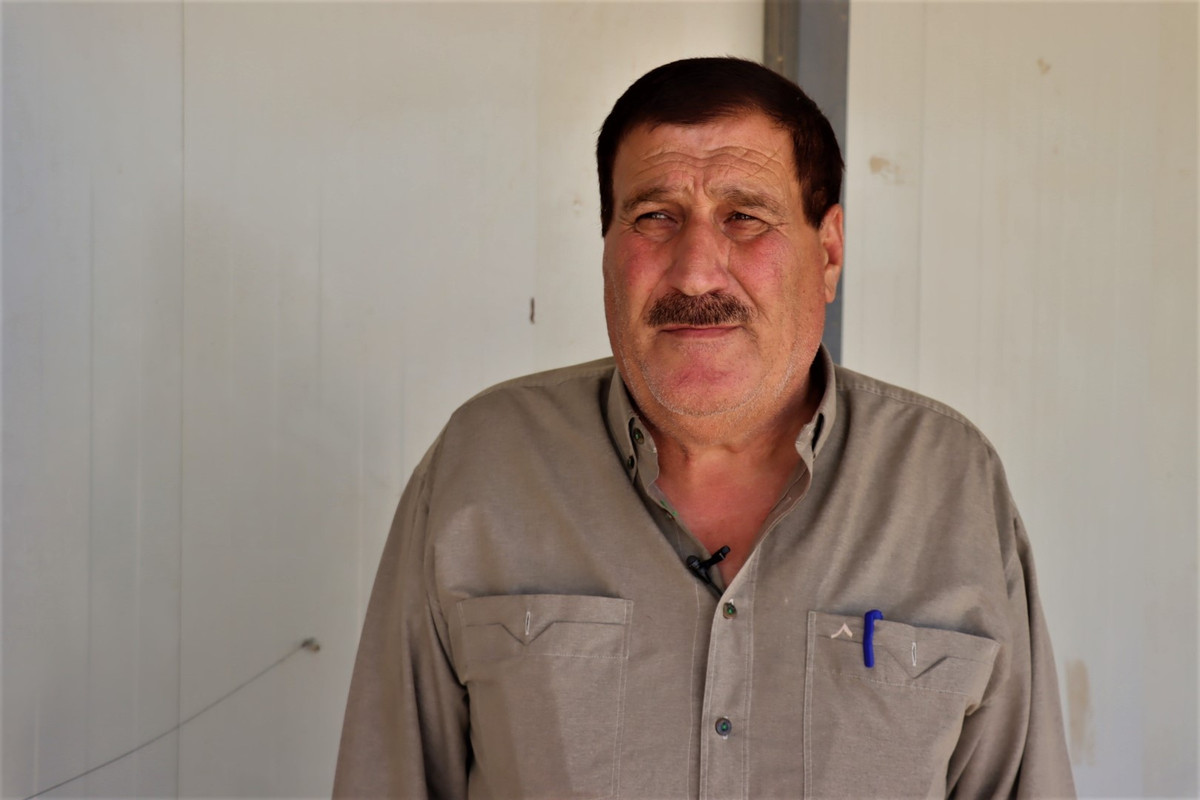
Xezal Bozo, who resides in the Serêkaniyê camp, said: “We live in this camp. Nothing is the same as before. We can't even buy candy for kids because it's too expensive.”
Bozo added: “The first thing we remember during important days like Eid is our occupied city and how we used to celebrate the holidays with our families and relatives back there. Our only hope is that the invaders leave, and we return to our homeland and live in peace as before.”
